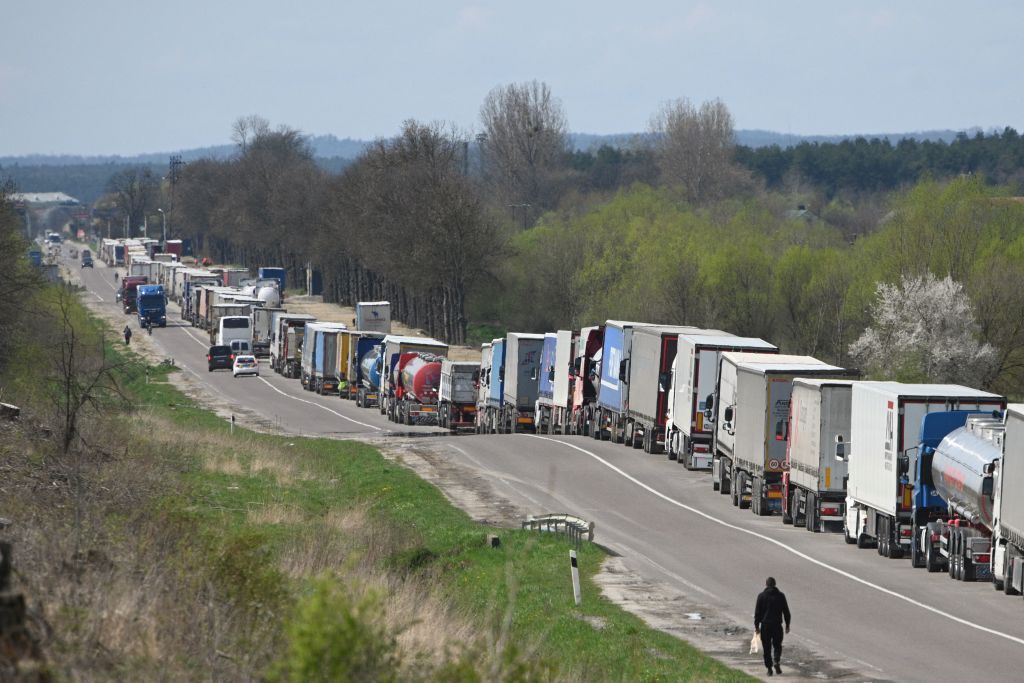The Ukraine Business Roundup newsletter from April 30, 2024, highlights some key events in business and tech in Ukraine. One significant development was the conclusion of protests by Polish farmers at the Hrebenne-Rava-Ruska border crossing. These protests, which had been ongoing for months, disrupted Ukrainian exports and strained Ukrainian-Polish relations. The protests were sparked by concerns over cheaper Ukrainian products entering the Polish market. The blockade had a significant economic impact, with losses estimated in the hundreds of millions for the state budget and individual businesses. While negotiations and government subsidies have helped diffuse the situation for now, there is still a possibility of renewed protests in the future.
U.S. Treasury Secretary Janet Yellen proposed using interest earnings from frozen Russian assets to support Ukraine. The West froze around $300 billion in Russian Central Bank assets in response to the invasion, and Yellen’s proposal could provide a way to assist Ukraine without directly confiscating the assets. The plan has gained traction among G7 countries, offering a potential avenue for providing financial support to Ukraine. Additionally, the EU’s plan to transfer sanctions-related profits to Ukraine has been praised by Yellen, highlighting international efforts to assist the war-torn country.
A bilateral trade agreement between Ukraine and the United Arab Emirates was finalized, aiming to boost investment and trade between the two countries. The deal comes at a time when Ukraine’s trade has been impacted by the conflict with Russia, providing an opportunity to expand non-oil trade with the UAE. The agreement is expected to benefit Ukraine’s GDP and improve trade conditions by lowering tariff barriers and promoting investment cooperation. This agreement reflects Ukraine’s efforts to strengthen economic ties with global partners amidst challenging circumstances.
A survey by the European Business Association revealed that 74% of companies in Ukraine are facing personnel shortages, a significant increase from the previous year. The shortage is attributed to various factors, including talent shortages, mobilization, and employee desire to work remotely. To address these constraints, businesses are considering salary increases and training programs. The study underscores the impact of the conflict on Ukraine’s labor market and the challenges faced by businesses in recruiting and retaining talent.
The impending expiration of a gas transit deal between Ukraine and Russia raises concerns for European gas security. With negotiations for transit capacity at the border proving challenging, uncertainty looms over the future of gas transit through Ukraine. European countries that rely on Russian gas transported through Ukraine may face disruptions in their gas supply next winter. The expiration of the agreement highlights the complex energy dynamics in the region and the potential implications for European energy markets.
In commemoration of the 1986 Chornobyl nuclear disaster, a report by the Kyiv Independent examines Ukraine’s nuclear energy industry in the context of Russia’s occupation of the Zaporizhzhia nuclear power plant. The article explores the current state of nuclear safety in Ukraine and the challenges faced by the industry. Meanwhile, efforts are underway to block illegal gambling websites in Ukraine, with over 2,500 sites already blocked. Other developments include projections of Ukraine’s wheat crop for the upcoming season, Naftogaz’s increased gas production, and the allocation of funds for infrastructure reconstruction. These updates reflect the multifaceted challenges and opportunities facing Ukraine’s economy in the aftermath of the conflict.


